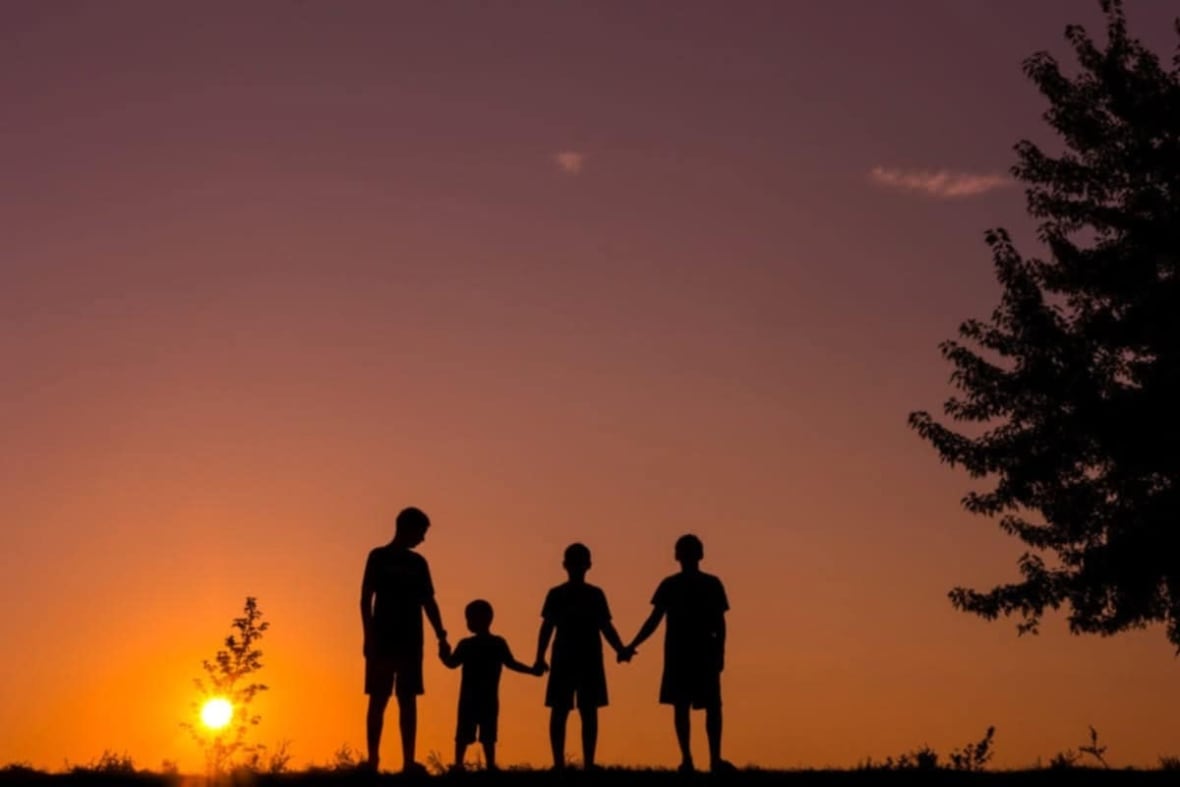
Destined to be a boy mom? New study suggests baby's sex isn't always random
Published: 2025-07-27 09:29:32 | Views: 11
Ashley Clouthier says she hoped her first child would be a boy, so when he was, she was ecstatic.
Clouthier, 39, of Almonte, Ont., grew up with an older brother, and wanted the same experience for the large family she was planning with her husband. And when their next child was also a boy, well, even better. Best buds close in age, she thought, and two big brothers for their brood of future children.
But then their third child was a boy. And their fourth. Today, Clouthier's boys are ages 13, 12, 10 and four — and she says she's not planning to have any more children. But if she did?
"I'm sure it would be a boy," she said with a laugh.
There just might be some truth to that, according to a new study that suggests a child's sex at birth might not be entirely random.

The study, published July 18 in the journal Science Advances, examined the maternal and genetic factors that influence the sex of offspring after several of the co-authors observed examples of friends, colleagues and family members who had produced either all boys or all girls, which, they say, raised questions about chance.
Researchers at the Harvard T.H. Chan School of Public Health examined a dataset of 58,007 U.S. women with two or more singleton live births and found that "each family may have a unique probability of male or female births," they wrote in the study.
"The data suggested that there may be families that are more likely than not to have only girls, [and] families that are more likely than not to have only boys," Dr. Jorge Chavarro, a professor of nutrition and epidemiology and one of the authors of the study, told CBC News.

'A weighted coin'
Specifically, mothers with three or more children were more likely to have either all boys or all girls, which challenges the traditional view that the probability is "random and independent," or that you have a 50-50 chance of having a boy or a girl each pregnancy, the authors wrote.
They calculated that, in families with three boys, the probability of having another boy was 61 per cent, and in families with three girls, the probability of having another girl was 58 per cent.
"Akin to flipping a weighted coin with roughly a 60-40 probability," Chavarro explained.
The study suggests that there are subtle biological or genetic influences at play, rather than pure chance, which is what we know to be true of most things in life, said Dr. Sebastian Hobson, the head of labour and delivery at Mount Sinai hospital in Toronto and a maternal fetal medicine specialist.
Hobson, who is also the chair of obstetrics for the Society of Obstetricians and Gynaecologists of Canada and who was not involved in the study, noted that the Harvard study is large and methodologically rigorous, but as with any study, the results should be interpreted with caution.
The observed effects are small, he said, don't determine cause and effect, and the large population was predominantly white and U.S.-based, so can't be generalized globally. They also didn't gather any information about the biological fathers, he added.
"Biology can nudge these probabilities slightly, but predicting a child's sex remains highly uncertain," Hobson said.
"I think this is a great study, but it's not the be all and end all of sex determination."
'Lose the birth lottery'
Previous studies have found that parents are more likely to have a third child if their first two are the same sex, often in hopes the third child will be the opposite. And you only have to spend some time at school pickups, playgrounds and community pools to see that, well, it doesn't always work out that way.
One recent study in the Journal of Behavioral and Experimental Economics refers to those who have three boys or three girls as parents who "lose the birth lottery."
"If I got paid $1 for every time someone said, 'Are you going to try for a girl?' I'd be a millionaire," said Krystyna Recoskie, 48, also of Almonte, Ont., and a friend of Clouthier's. She has three boys, ages 15, 13 and 11.
"For a while, it made me feel like I had failed. Like it was bad. How ridiculous is that?" she added. "I am blessed. I am complete."

In the Harvard study, the researchers found that two-child families were actually more likely to be opposite sexes, or boy-girl, which they suggested implies that "couples are more inclined to stop reproducing when a balanced sex was reached."
As for why some mothers were more likely to give birth to all-boys or all-girls, the authors suggested some women are at high risk of producing offspring of a specific sex due to factors affecting sperm survival. As well, procreation behaviour can be strongly influenced by the sex of previous children, they added.
In addition, the authors found that older maternal age at first birth could be a risk factor for repeatedly giving birth to children of only one sex. This may be due to biological changes in the body, they said, like shorter follicular phase and lower vaginal pH.
'Four boys, poor you'
Other studies have explored the idea of gender disappointment, or the feeling of sadness a parent may experience when their child's sex doesn't match with what they'd hoped for, and suggest it's more prevalent than we may think.
"Gender disappointment in Western cultures is mostly related to the desire for 'gender balance' in the family — having a child of each gender to experience being a mother to sons as well as daughters," notes a 2023 study in the BJPsych Bulletin journal.
Clouthier says she's never been disappointed about having four boys, and any negativity she experiences comes from other people. In a lot of ways, it's easier to have four kids all the same sex, she explained, between the hand-me-downs and gear they already have on hand. Birthday party themes can also overlap.
And yes, it can get loud, and rough, and there are kid-sized holes in the drywall, but she notes her boys are also sweet, sensitive and cuddly.
"I still get comments all time time, where people say, 'Four boys, poor you,'" Clouthier said.
And I'll say, 'Yeah, lucky me!'"

Source link








